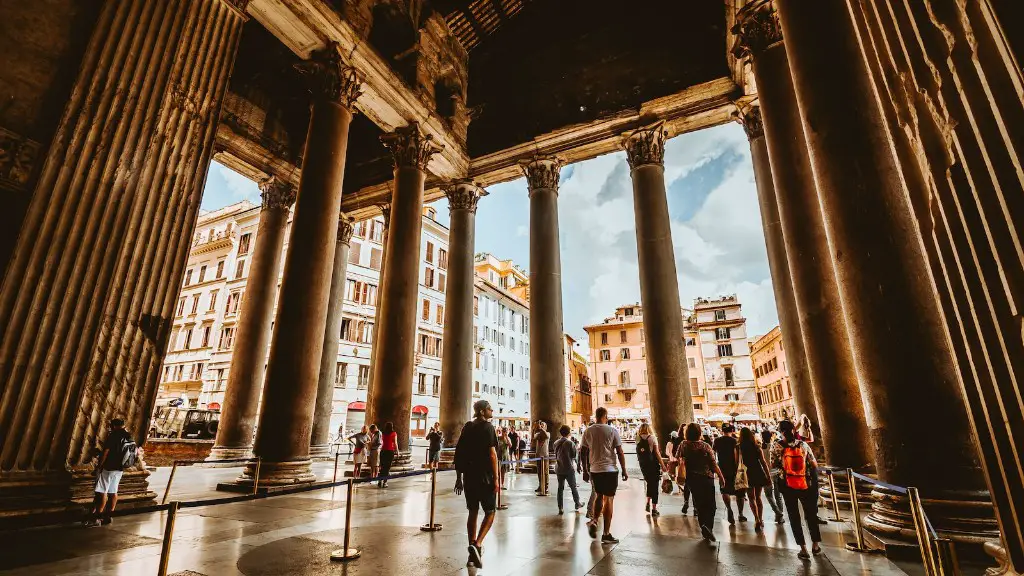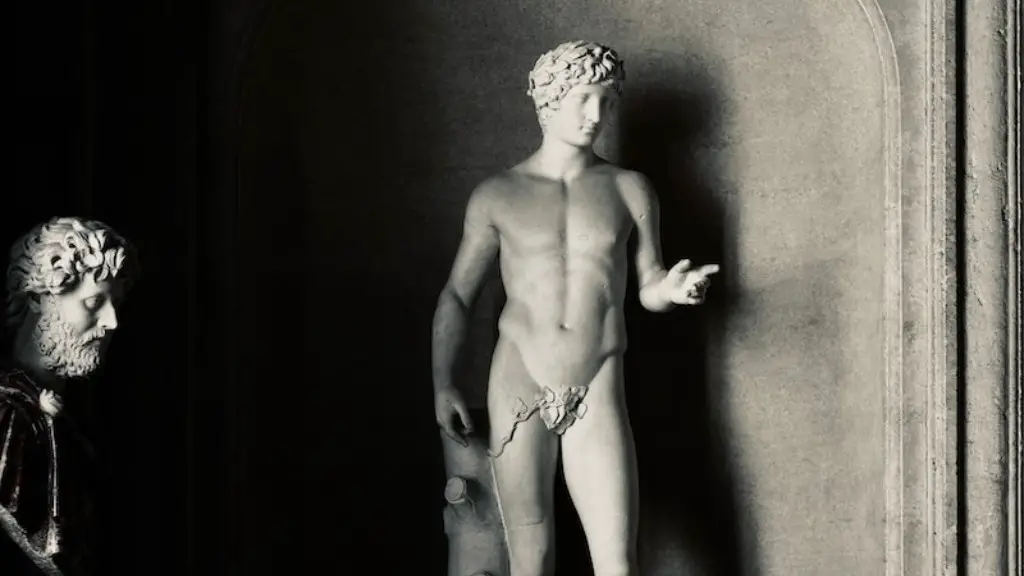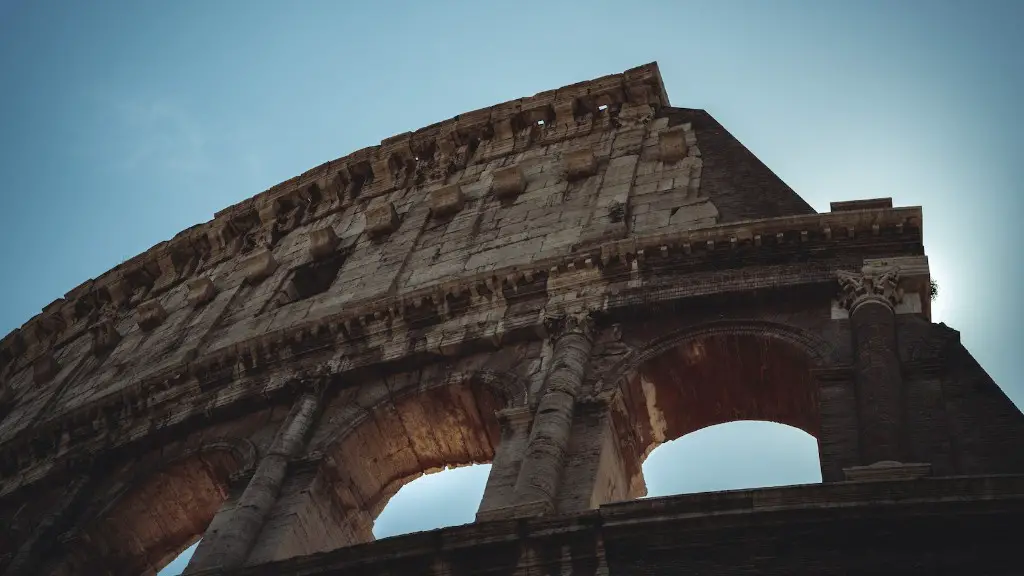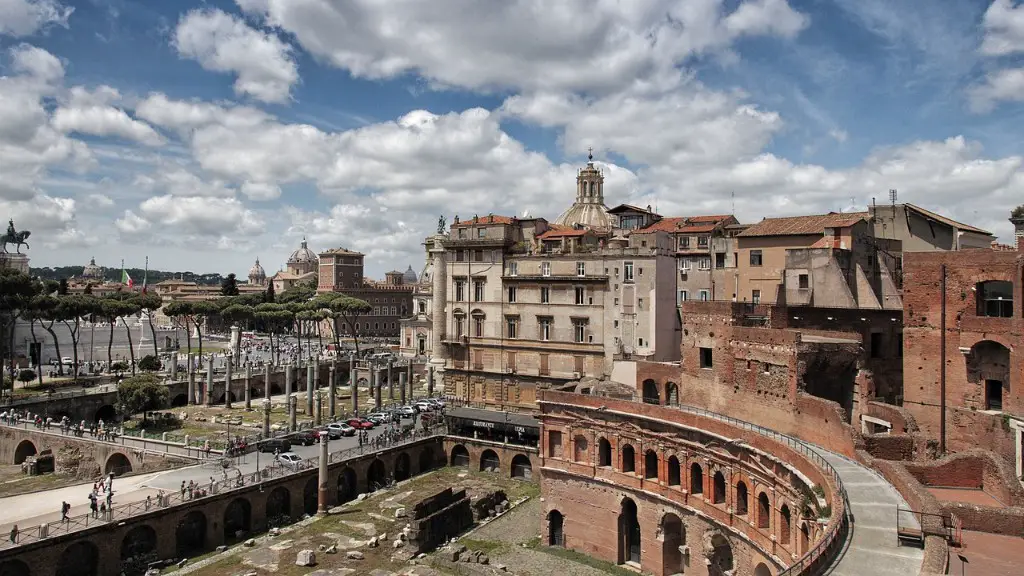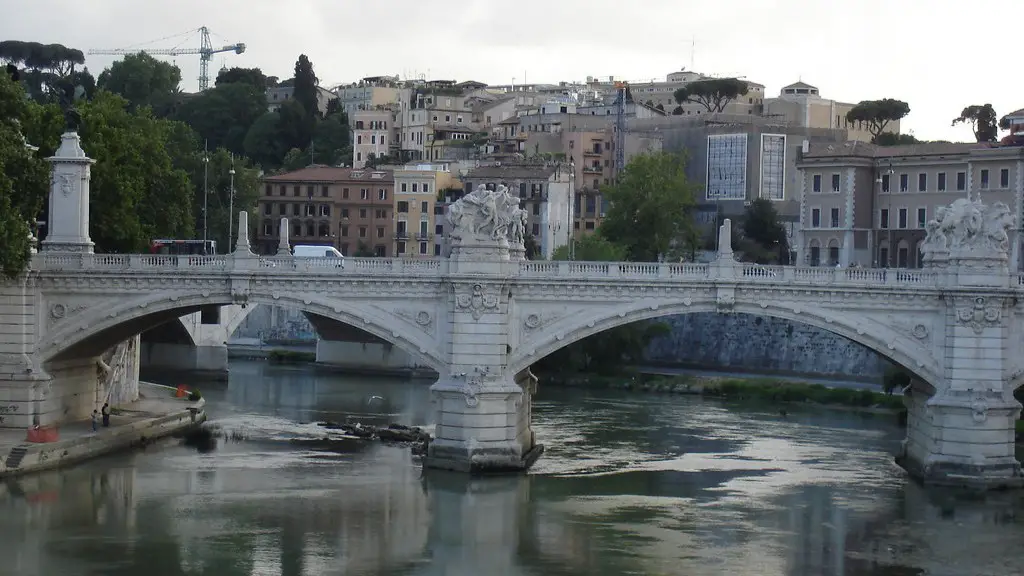In ancient Rome, tribunes were officials who represented the interests of the plebeian class. They were elected by the people and held the power to veto any actions of the government that they deemed to be unfair. Tribunes were also responsible for maintaining order and protecting the rights of citizens.
A tribune was an official in ancient Rome who protected the rights of the plebeians and presided over the Plebeian Council.
What did Roman tribunes do?
The tribune was a powerful position in early Rome, with the ability to assemble the plebs and propose laws. Initially, these laws only applied to the plebs, but by 287 BCE, they were extended to all Roman citizens, including the Patricians. This gave the tribune a great deal of power and influence over the lives of all Romans.
The tribuni plebis were the tribunes of the plebeians, the common people of Rome. They were elected by the plebeians, and their primary duty was to represent the interests of the plebeians to the Roman government.
The tribuni militum were the military tribunes, responsible for the administration and logistics of the Roman military. They could lead a section of a legion under a consul, or even command one alone on the battlefield.
Both of these tribunates were very important in Ancient Rome, and held a great deal of power.
What was the purpose of tribunes
In Rome, a tribune was an elected representative of the common people. A tribune was expected to look after the interests of the people, just like our politicians today.
The tribunes of the plebs were originally created as a way to protect the interests of the common people against the patrician class. Over time, they accumulated more and more power, to the point where they could propose legislation, summon citizens to vote, and call meetings of the senate. While the consuls were the highest ranking officials in the Republic, the senate had the most influence and prestige. This made the tribunes of the plebs a very important part of the government, and their authority was greatly respected.
What did the tribunes protect?
The tribunes of the commons were the official representatives of the plebeians in Ancient Rome. They were created in 494 BC in order to protect the plebeians from the oppression of the patricians and the consuls. At first, there were only two tribunes, but this number increased to five and then to ten. The tribunes had the power to veto the actions of the consuls and other officials, and they were also responsible for protecting the rights of the plebeians.
The tribunes were a critical part of the Roman Republic, acting as a check on the authority of the Senate and the magistrates. They were elected by the people, and their primary duty was to represent the interests of the people. Over time, the tribunes became increasingly powerful, and eventually they were able to veto legislation and bring about the recall of magistrates. The tribunes were a key part of the Roman Republic, and their power helped to keep the government in check.
Who could be a tribune?
The term “tribune” first appears in Livy’s history of Rome, but the word originally referred to a magistrate in the Roman Republic. A tribune was an official who represented the interests of the people, and his primary task was to protect the people against oppression. In the fifth century BCE, the republican magistracies were monopolized by aristocrats called patricians. This led to social unrest, and the tribunes were created in an attempt to address this problem. The tribunes had the power to veto the actions of the other magistrates, and they used this power to protect the interests of the people.
The plebeians were the common people of ancient Rome who were not members of the patrician class. Over time, they began to elect their own representatives, called tribunes, who had the power to veto measures passed by the Senate. This helped to balance out the power between the two classes and eventually led to the establishment of the Roman Republic.
Who were the tribunes quizlet
The tribunes were people who were elected by the plebeians in order to represent them and their interests in the Senate. They were also given the power of veto in order to prevent any action that they felt was unfair from being carried out.
A tribune was an official who was elected by plebeians to protect their interests The tribunes to veto or block law that they thought hurt the plebeians Veto means to block a government action Tribunes used this method to help the plebeians.
What power did tribunes have in Rome?
The tribunes were a class of officials in ancient Rome who had the power to convene and preside over the Concilium Plebis (people’s assembly); to summon the senate; to propose legislation; and to intervene on behalf of plebeians in legal matters. The most significant power of the tribunes was the ability to veto the actions of the consuls and other magistrates, thus protecting the rights of the plebeians.
The plebeian tribunes were a group of magistrates in early Roman Republic who were created to defend the plebeians from abuse. They eventually gained a lot of authority and became the most important magistrates in the Republic.
How long did tribunes serve in Rome
Roman Magistrates were officials in ancient Rome who held various roles in the government. The most important magistrates were the Consuls, who were two officials elected annually from 509 BC. The Interrex served only five days and the Consular Tribunes were elected for annual terms. The Censors were two officials elected every five years from 443 BC.
Early Rome was a time when each of the three tribes (Ramnes, Luceres, and Tities) sent one commander when an army was mustered. The tribunes were commanders of the original legion of 3,000. The word tribunus derives from tribus, “tribe”. Tribunes were originally responsible for the welfare of the soldiers and for maintaining discipline. However, over time their role changed and they became an important part of the Roman political system.
What is the history of tribune?
The Tribune is an Indian English-language daily newspaper published from Amritsar, Jalandhar, Ludhiana, Bathinda, Chandigarh and New Delhi. It was founded on 2 February 1881, in Lahore, Punjab (now in Pakistan), by Sardar Dyal Singh Majithia, a philanthropist, and is run by a trust comprising five persons as trustees.
The plebeians were the lower class of people in ancient Rome who mostly worked the land owned by the patricians. Some plebeians owned small plots of land, but this was rare until the second century BC. The plebeians were often farmers, and their work was essential to the Roman economy. However, they were not treated equally to the patricians and did not have the same rights or privileges. This social inequality was a major source of conflict in Rome, and the plebeians often revolted against their treatment.
Conclusion
Tribunes were officials in Ancient Rome who had the power to veto laws that they believed were unfair. They also had the power to convene the Roman Senate and to act as a voice for the people.
In conclusion, tribunes in ancient Rome were government officials who protected the rights of common citizens. They were elected by the people and had the power to veto laws enacted by the Senate. Tribune was a very important position in the government of Ancient Rome
